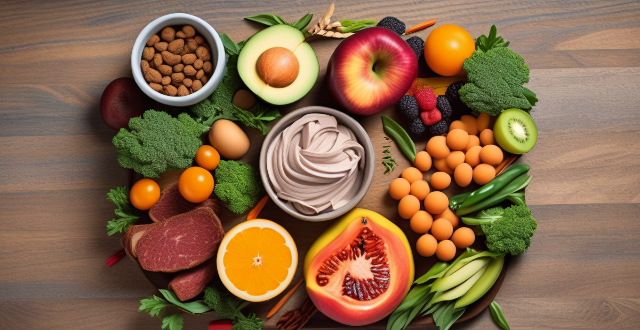How to make a healthy breakfast on a budget: plan ahead, buy in bulk, cook at home, use seasonal produce, don't skip protein, get creative with leftovers, and keep it simple.

How to Make a Healthy Breakfast on a Budget
Breakfast is often considered the most important meal of the day, but it can also be the most expensive. If you're looking to save money while still enjoying a nutritious breakfast, here are some tips for making a healthy breakfast on a budget:
1. Plan Ahead
Planning ahead is key to saving money and time in the morning. Take some time each week to plan out your breakfasts for the week ahead. This will help you avoid impulse purchases and ensure that you have everything you need on hand.
2. Buy in Bulk
Buying in bulk can save you money in the long run. Look for items like oats, nuts, seeds, and dried fruit that can be stored for a long time and used in a variety of breakfast dishes. Just make sure to check the expiration dates before purchasing.
3. Cook at Home
Cooking at home is almost always cheaper than buying pre-made breakfast items. Simple recipes like oatmeal, smoothies, and eggs can be made quickly and easily at home with ingredients you already have on hand. Plus, cooking at home allows you to control the quality and quantity of what you're eating.
4. Use Seasonal Produce
Seasonal produce is often less expensive than out-of-season fruits and vegetables. Check your local farmer's market or grocery store flyer for sales and specials on seasonal produce. Incorporating these into your breakfasts can add flavor and nutrition without breaking the bank.
5. Don't Skip Protein
Protein is an essential part of a healthy breakfast, but it doesn't have to come from expensive sources like meat or fish. Eggs, yogurt, cottage cheese, and even beans are all great sources of protein that won't break the bank.
6. Get Creative with Leftovers
Don't let leftovers go to waste! Turn last night's dinner into today's breakfast by repurposing leftover veggies, meats, or grains into a frittata, stir-fry, or salad. This not only saves money but also helps reduce food waste.
7. Keep It Simple
Sometimes simpler is better (and cheaper). A piece of fruit, some nuts, and a cup of tea or coffee can make a satisfying and budget-friendly breakfast. Remember, you don't need to spend a lot of money to eat well.
In conclusion, making a healthy breakfast on a budget requires planning ahead, buying in bulk, cooking at home, using seasonal produce, incorporating protein sources that won't break the bank, getting creative with leftovers, and keeping it simple. By following these tips, you can enjoy a nutritious breakfast without breaking the bank.